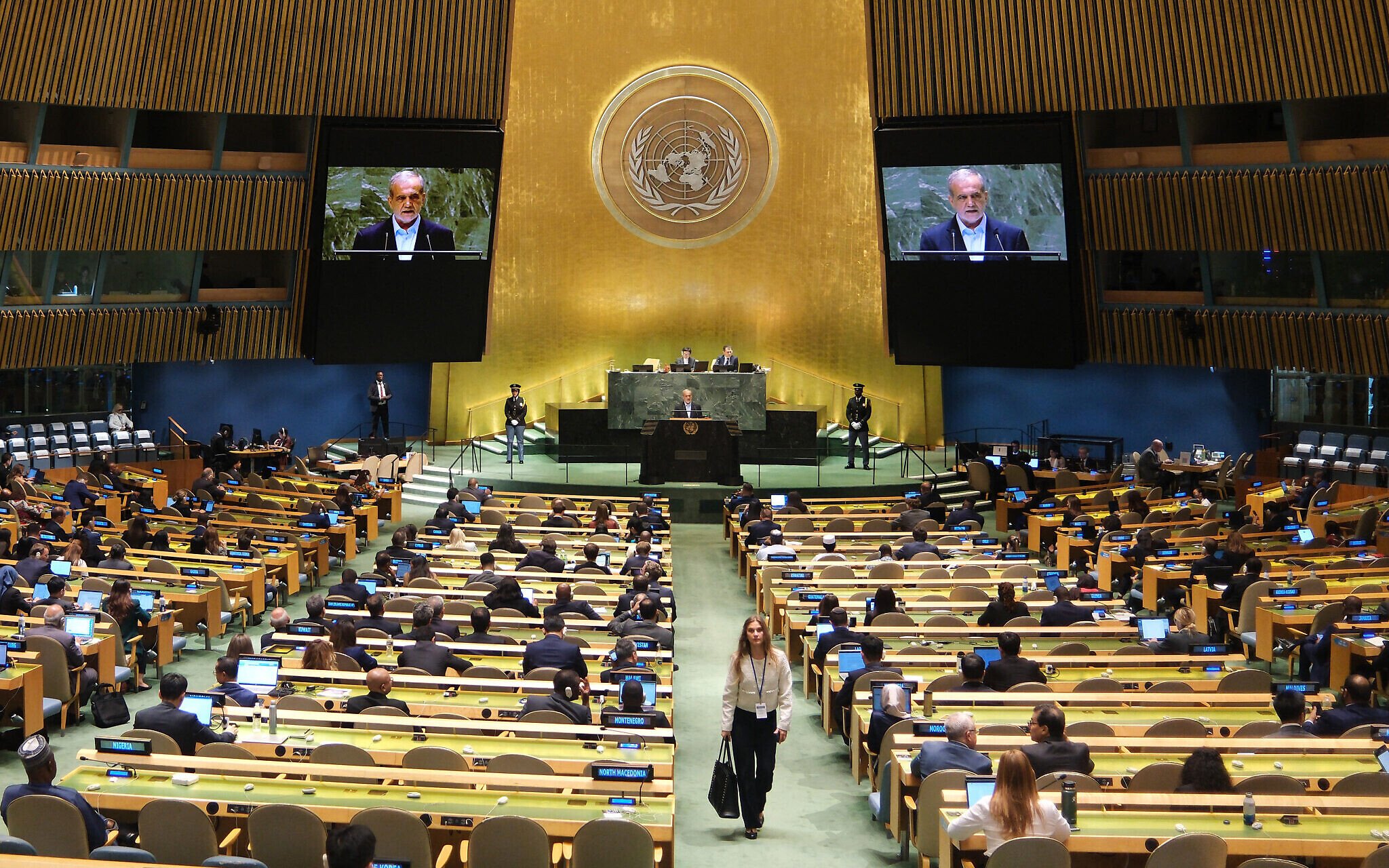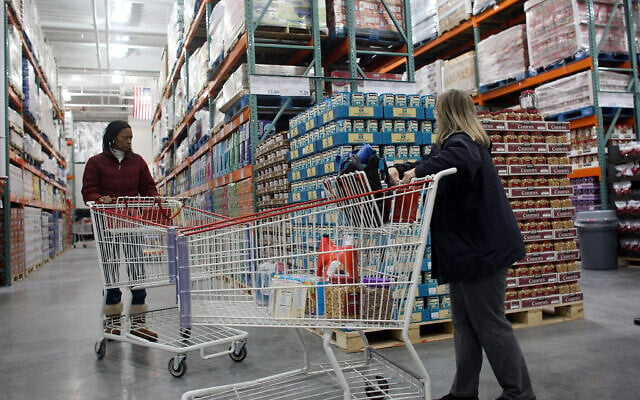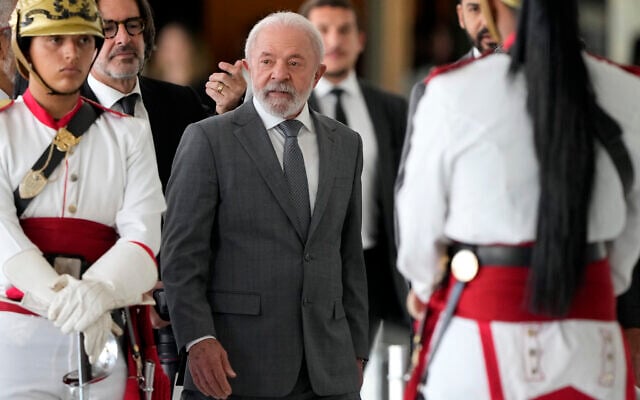


The White House could impose travel and other restrictions on Iranian and other delegations to the United Nations General Assembly this month, according to an internal US State Department memo seen by The Associated Press.
Restrictions on the delegations from Iran, Sudan, Zimbabwe and Brazil would follow the White House’s denial of visas to Palestinian Authority President Mahmoud Abbas and his delegation to the confab, where several Western nations have pledged to recognize Palestinian statehood.
The potential restrictions, which are still under discussion and could change, would severely limit the delegations’ ability to travel outside New York City.
The movements of Iranian diplomats are already limited inside New York, but one proposal being floated would bar them from shopping at big, members-only wholesale stores like Costco and Sam’s Club without first receiving the express permission of the US State Department.
Such stores have been a favorite of Iranian diplomats posted to and visiting New York because they are able to buy large quantities of products not available in their economically isolated country for relatively cheap prices and send them home.
It was not immediately clear if or when the proposed shopping ban for Iran would take effect, but the memo said the State Department also was looking at drafting rules that would allow it to impose terms and conditions on memberships in wholesale clubs by all foreign diplomats in the US.
Tensions between Iran and the United States have spiked after US President Donald Trump ordered US bombers to attack key Iranian nuclear sites during the 12-day Israel-Iran war in June. The war put a halt to US-Iran nuclear talks that began in April.
While Iran, whose leaders are sworn to destroy Israel, has publicly denied seeking nuclear arms, it has amassed uranium enriched to a degree with no civilian usage, and rejected Trump’s demands that it halt enrichment activities.
For Brazil, it was not clear if any potential visa restrictions would affect President Luiz Inácio Lula da Silva or lower-level members of the country’s delegation to the UN gathering.
Brazil’s president is traditionally the first world leader to speak before the gathered officials on the opening day of the session. The US president is by precedent the second speaker.
Lula has been a target of Trump, who objects to the Brazilian government’s prosecution of former Brazilian President Jair Bolsonaro, a Trump ally accused of leading an attempted coup.
Lula was also declared persona non grata in Israel last year for comparing the war in Gaza to the Holocaust. Israel and Brazil downgraded their diplomatic relations last month.
The US State Department did not immediately provide comment. The Iranian and Brazilian UN missions didn’t immediately reply to requests for comment.
It was not immediately clear why the State Department memo appeared to single out Iran, Brazil, Sudan and Zimbabwe for potential restrictions. Though named as possible targets, the memo did not specify what restrictions might be imposed on the Sudanese and Zimbabwean delegations.
One country that will see fewer restrictions is Syria, whose delegation members have received a waiver from limitations that have been put on their UN travel for more than a decade.
That waiver was issued last week, according to the State Department memo, and comes as the Trump administration seeks to build ties following the ouster last year of Syria’s Iran-backed President Bashar al-Assad, and integrate the once-pariah nation into the Middle East.



